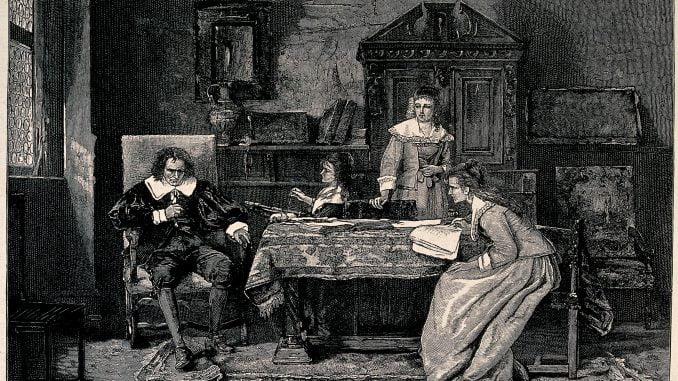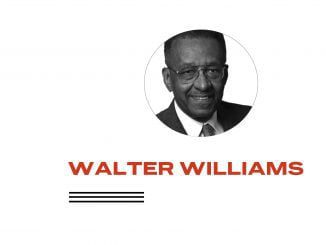
 Seventeenth-century poet and intellect John Milton predicted, “When language in common use in any country becomes irregular and depraved, it is followed by their ruin and degradation.” Gore Vidal, his 20th-century intellectual successor, elaborated saying: “As societies grow decadent, the language grows decadent, too. Words are used to disguise, not to illuminate.” Sloppy language permits people to get away with speaking and doing all manner of destructive nonsense without being challenged.
Seventeenth-century poet and intellect John Milton predicted, “When language in common use in any country becomes irregular and depraved, it is followed by their ruin and degradation.” Gore Vidal, his 20th-century intellectual successor, elaborated saying: “As societies grow decadent, the language grows decadent, too. Words are used to disguise, not to illuminate.” Sloppy language permits people to get away with speaking and doing all manner of destructive nonsense without being challenged.
Let’s look at the concept of “white privilege,” the notion that white people have benefited in American history relative to, and at the expense of, “people of color.” It appears to be utter nonsense to suggest that poor and destitute Appalachian whites have white privilege.
How can one tell if a person has white privilege? One imagines that the academic elite, who coined the term, refer to whites of a certain socioeconomic status such as living in the suburbs with the privilege of high-income amenities. But here is a question: Do Nigerians in the U.S. have white privilege? As reported by the New York Post this summer, 17% of all Nigerians in this country hold master’s degrees, 4% hold a doctorate and 37% hold a bachelor’s degree, according to the U.S. Census Bureau’s 2006 American Community Survey. By contrast, 19% of whites have a bachelor’s degree, 8% have master’s degrees and 1% have doctorates.
What about slavery? Colleges teach our young people that the U.S. became rich on the backs of free black labor. That is utter nonsense. Slavery does not have a very good record of producing wealth. Think about it. Slavery was all over the South and outlawed in most of the North. I doubt that anyone would claim that the antebellum South was rich, and the slave-starved North was poor. The truth is just the opposite.
In fact, the poorest states and regions of our country were places where slavery flourished: Mississippi, Alabama and Georgia, while the richest states and regions were those where slavery was outlawed: Pennsylvania, New York, New Jersey and Massachusetts.
Some of the greatest language mischief is related to terms such as racial “disparities,” “gaps” and “disproportionality.” These terms are taken as signs of injustice that must be corrected. The median income of women is less than that of men. Black and Hispanic students are suspended and expelled at higher rates than white students.
There are other race disparities and gaps all over the place. For example, blacks are 13% of the population but 80% of professional basketball players and 66% of professional football players, and on top of that, they’re some of the most highly paid players. To be consistent with leftist ideology, those numbers seem to suggest that there is some kind of injustice toward Asian, white and Hispanic basketball and football players. But before we run off thinking that everything is hunky-dory for black players in football, how many times have you seen a black player kick an extra point in professional football?
What should be done to address these and other gross disparities? How can we make basketball, football, dressage and ice hockey, classical music concert attendance, not to mention incarceration, look more like America? In general, we should ignore disproportionality. There is no evidence, anywhere in the world, suggesting that people sort out in any activity according to their numbers in the general population.
The best thing that we can do is clean up our language. That will have the added benefit of straightening out our thinking so that we do not permit leftists to get away with making us feel guilty and believing in utter nonsense.
Walter E. Williams is a professor of economics at George Mason University.


